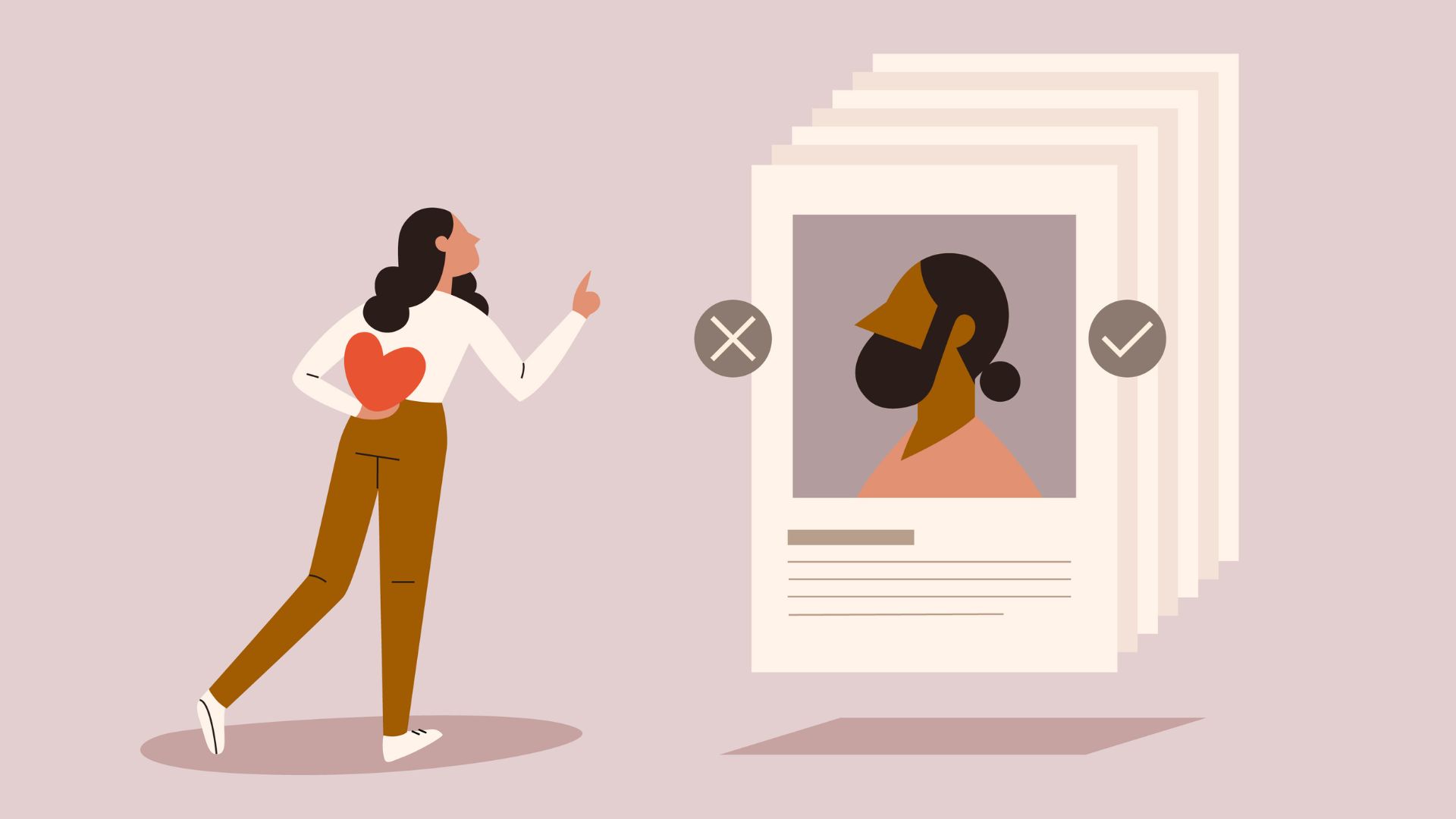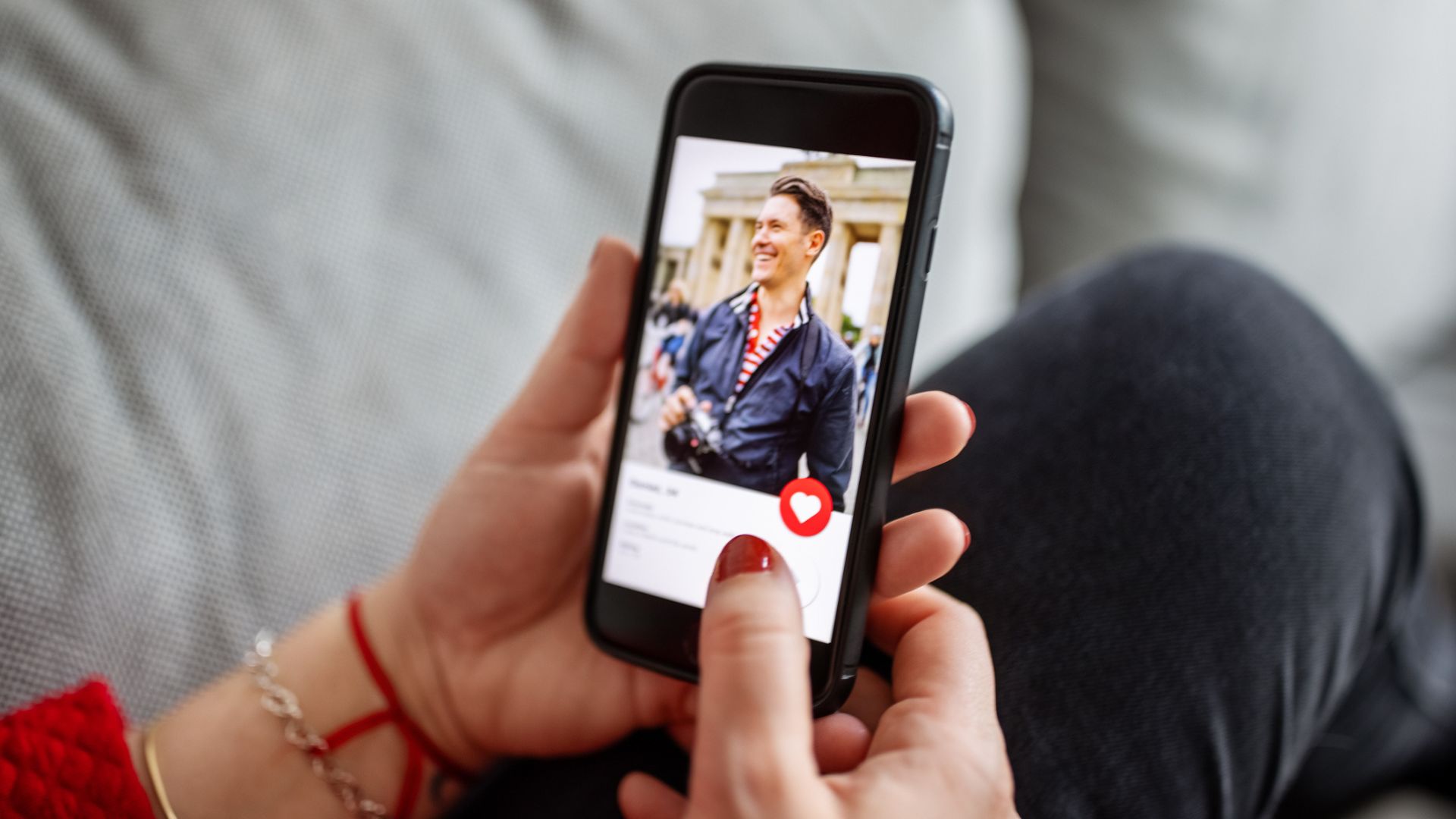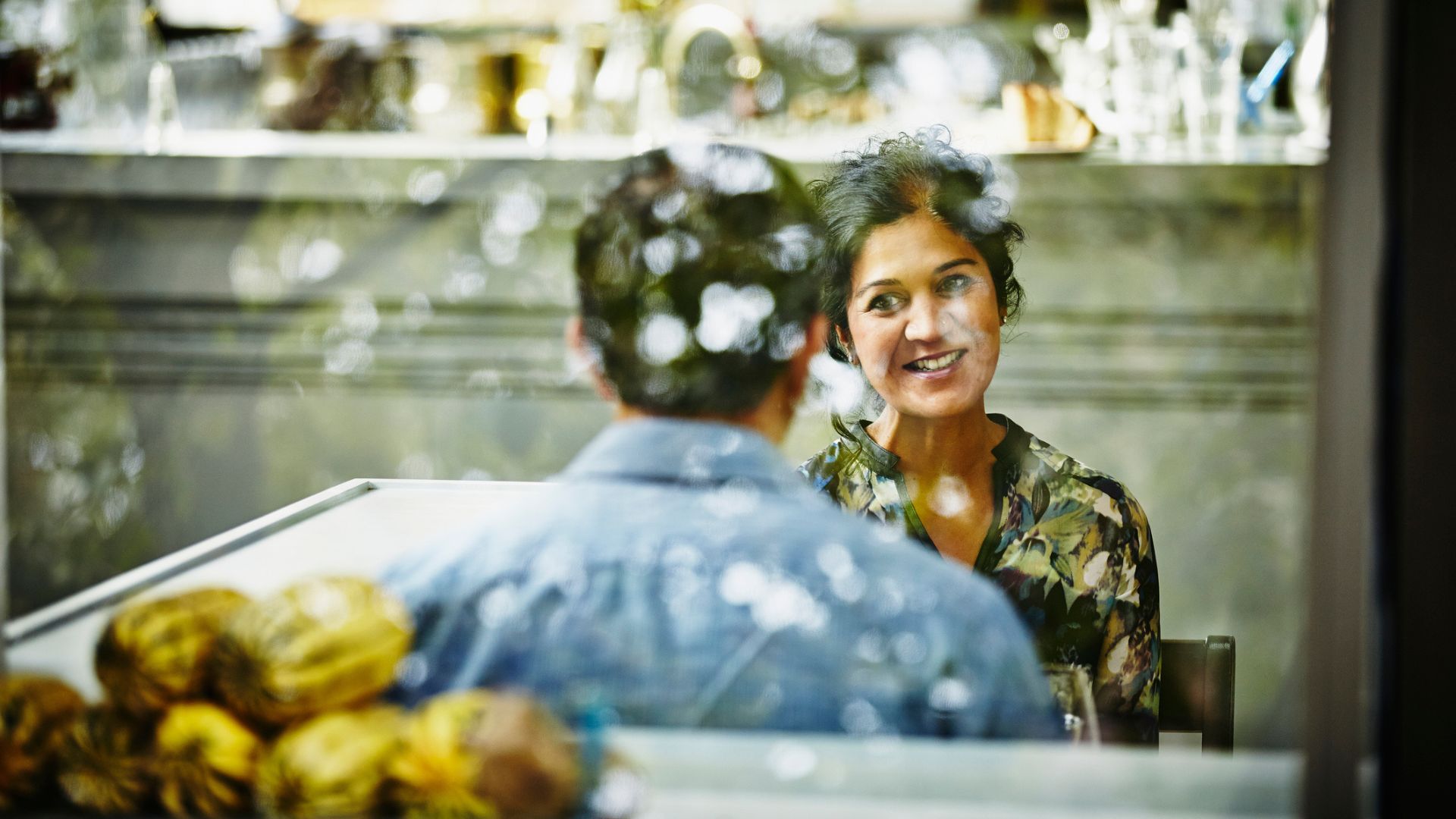What is dating burnout? Plus, how to recover with tips from an expert
Here, an psychologist reveals how to recover from dating burnout and avoid it in the future


Dating burnout is a 21st-century phenomenon, born from the boom of online dating and the rise of dating apps over the last decade. Where once meeting your partner online was something you only confessed to close friends, it's now one of the main ways single people are meeting in 2022.
Tinder, one of the most popular dating apps out there alongside Hinge and Bumble, is celebrating its 10th anniversary this year. A whole decade of swipes, awkward opening lines, drinks, dinner, and…ghosting? While many of these interactions have landed users with partners for life, many have experienced the other side of online dating: burnout from too many swipes and too few actual connections.
Burnout is a term we almost exclusively use to describe workplace exhaustion, but with the constant pressure to meet expectations and a feeling of hopelessness one of the most common symptoms, is burnout from dating really so different? This is what a chartered psychologist and three women who’ve experienced the phenomenon firsthand have to say about dating burnout, and what to do if you want to learn how to recover from burnout in the long term.
What is dating burnout?
Dating burnout is chronic stress and exhaustion from prolonged and frustrating dating app use. “Many describe feelings of hopelessness, inadequacy, and mostly exhaustion,” says Rachel MacLynn, a chartered psychologist and dating behavior specialist. “Dating burnout can affect your mental health as it can mimic symptoms of clinical depression as the person can begin feeling a loss of interest in daily activities, have a cynical mindset, and experience a loss of empathy.”
It’s very similar to relationship burnout in the sense that you may also lose interest in finding a partner or being with someone at all, along with any interest in sex or intimacy.

What causes dating burnout?
While anyone who's actively looking to meet a partner could experience dating burnout, research from Singles Reports suggests that dating apps are primarily to blame. According to their survey, four in five people on dating apps have experienced or are currently dealing with emotional fatigue or burnout because of online dating.
These apps offer another way to meet someone, opening up the dating pool in terms of age, location, gender, and sexuality, as many of the apps allow users to set preferences for all these categories. So whoever you're looking for, you're surely more likely to meet them, right? Unfortunately not, as three women tell us that the vast pool of potential partners is exactly the problem, with many not looking to commit and some actually already in relationships.
Sign up to our free daily email for the latest royal and entertainment news, interesting opinion, expert advice on styling and beauty trends, and no-nonsense guides to the health and wellness questions you want answered.
It’s something that Lisa, 42, from North London, knows only too well as an early adopter of some of the best dating apps for relationships, turned cynic. “My burnout comes down to all of the new games,” she says. “Ghosting, catfishing, and everything in between. People are on apps for different reasons, contrary to what the profile says, and I’m exhausted from filtering through and trying to find a genuine good egg. I know some of them are on the app but they are so hard to spot so I end up having to come across egotistical, narcissistic lost souls who have no idea what they want.”
For Lisa, the main cause of dating burnout is not the zombieing, fast-forwarding, 'breadcrumbing', and other bizarre dating trends, or even the lack of commitment - it's the lack of effort. “The thing that bothers me the most is the lack of effort and consistency. It seems we are in an age now where we are all so disposable and replaceable that no one wants to stand still to get to know one another anymore. I feel like I’m in a hamster wheel with no sign of coming off with a good guy.”

There's also the confusion that some people have between dating apps and the best casual sex apps, says Emilie, 33, who is living in the UK. “I see so many people in an open relationship on dating apps, and I don’t want to be the extra person there just for fun. It makes me feel like nobody wants to commit anyone. What also seems to happen a lot to me is that men don’t say upfront that they are in an open relationship or married.”
Others have cliché taglines on their profiles that suggest commitment is the last thing on their mind, whether they’re single or not. “I’ve noticed many men have ‘don’t take life too seriously’ or ‘let’s just have fun’ written on their profiles,” says Emilie. “This adds to the feeling that people are not interested in committing anymore. It feels like a free pass to me, like they’re saying ‘don’t expect anything from me’.”
It’s happened so many times, she says, that she feels depressed after coming home from a date. “I go home and feel more lonely than before the date. I usually [continue dating] for a couple of weeks, maybe one or two dates, then quit for a couple of weeks to avoid feeling emptiness.”
Kaye Ford, 32, from High Wycombe, agrees. “Situationships led to burnout for me for sure,” she says. “Men not wanting to commit but wanting the advantages of a girlfriend. It really can mess with your own self-worth. You’re good enough to act like a girlfriend, but not good enough to be the real thing.”
How to avoid dating burnout
There are three main ways to avoid dating burnout, says MacLynn, who is also the CEO and founder of MacLynn, a bespoke matchmaking service. While these won’t be too effective if you’re already in the habitual burnout phase of exhaustion, they may be able to help you avoid the pitfalls of online dating if you’ve been using the apps for a while.
- Be proactive: “If you’re looking for a partner, it’s important to proactively allocate the time to do that, be proactive in your own health and your own needs," says MacLynn.
- Prioritize: “Stop spending time engaging with people who you don’t see as long-term partners.”
- Get creative: “Think of alternative ways to meet someone. Use a matchmaker to help streamline the process of meeting your life partner to invest time into the monotonous tasks that feel exhausting," she says.
How to recover from dating burnout
1. Take a break
You can avoid burnout without quitting the dating world, just like you can a job, but if you're feeling exhausted then it's time to take a break. "Take a step back and focus on yourself," suggests the psychologist.
2. Focus on self-care
"By practicing self-care, you are being proactive in being your best self which in return will increase your self-esteem, your drive, and highlight the best qualities of your personality," MacLynn explains.
It's crucial to take care of yourself and practice healthy self-care habits if you're looking to learn how to overcome relationship anxiety of any kind, and to prevent burnout in the long run too, she says. "If you do not prioritize your own wellbeing and needs, how can you give your best to others? Healthy habits such as a good sleep pattern, exercise, and a healthy diet will all benefit you."
3. Seek outside help
While most people recover from dating burnout by taking their hat out of the ring for a little while, MacLynn says that speaking to an expert or finding a therapist that works for you can really help to regroup your thoughts and approach dating with a new mindset.
"Dating burnout can happen when people approach dating without a strategic plan," she says. "Working with a coach can help you pinpoint specific dating challenges and introduce a plan to help you overcome them, including practical advice and support to help implement the learnings. They offer a sounding board and accountability to keep you focussed and energized about dating."
It's an approach that Kaye found essential in her recovery from dating burnout. "I went to therapy and focused on me for a bit," she tells us. "I'm back on the apps again now but I'm being more methodical with it and only 'liking' people that I truly vibe with rather than just enjoy the way they look. I take into account what they write now and how they write it."

Grace Walsh is woman&home's Health Channel Editor, working across the areas of fitness, nutrition, sleep, mental health, relationships, and sex. She is also a qualified fitness instructor. In 2025, she will be taking on her third marathon in Brighton, completing her first ultra marathon, and qualifying as a certified personal trainer and nutrition coach.
A digital journalist with over seven years experience as a writer and editor for UK publications, Grace has covered (almost) everything in the world of health and wellbeing with bylines in Cosmopolitan, Red, The i Paper, GoodtoKnow, and more.